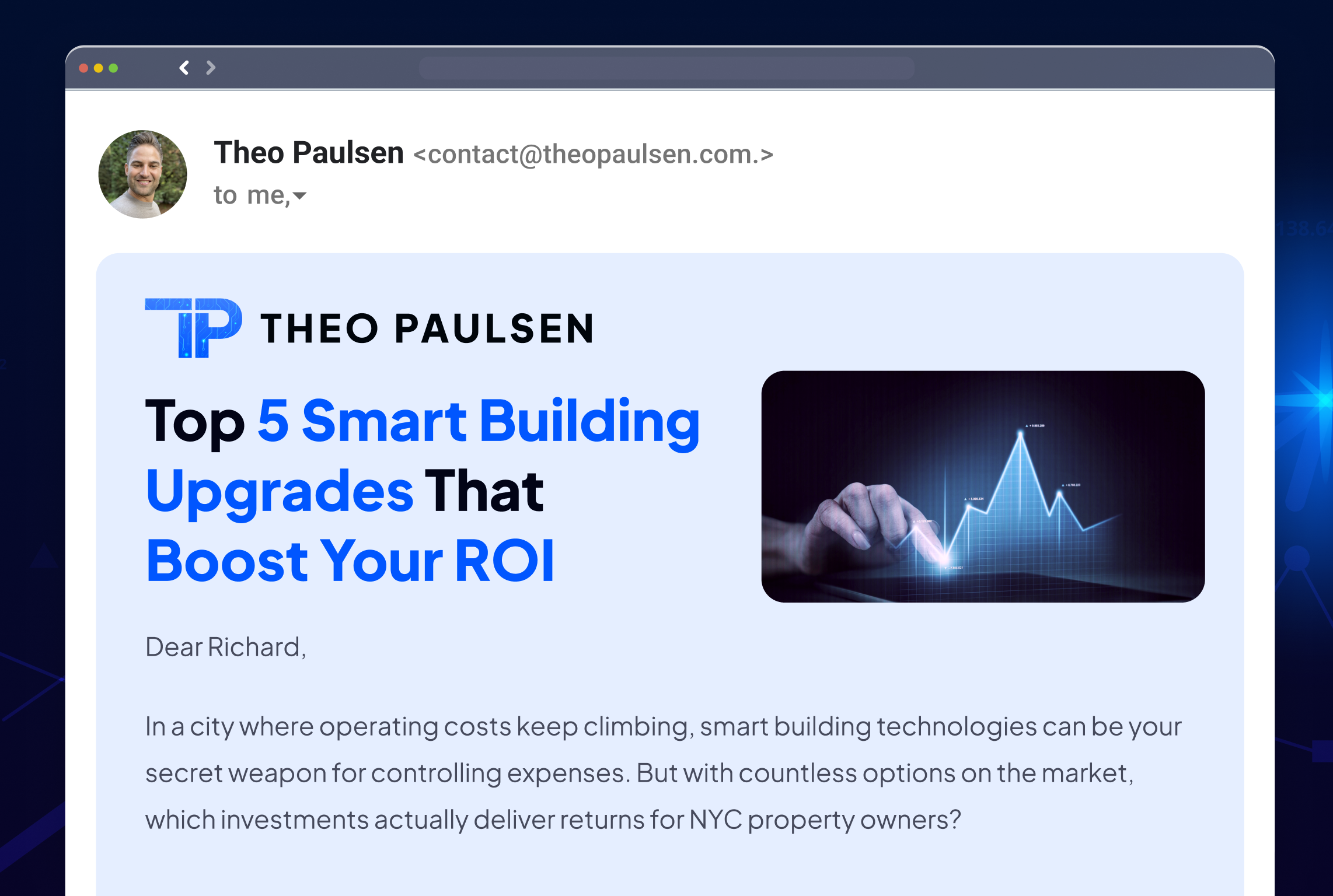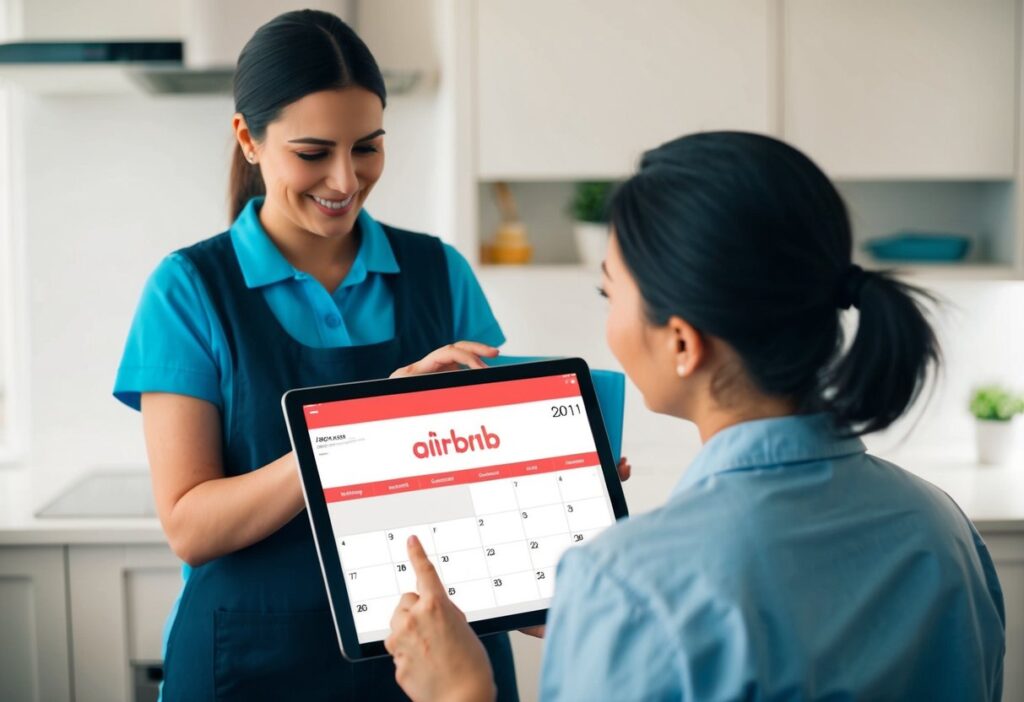Vacation Rental Management Fees Explained (What You’re Really Paying For)
Vacation rental management fees can significantly impact your rental business. Despite this, many STR property owners and investors overlook what they’re truly paying for. Whether it’s for late-night guest communication or premium concierge services, understanding how these property management fees work is essential to running a profitable vacation rental business.
In this expert guide, we’ll break down the costs, reveal hidden charges, and show you how to get the best value without compromising service. Ready to take control of your rental income? Let’s dive in.
Key Takeaways:
- Most Vacation Rental Management Fees Range from 15–30% of Revenue: Vacation rental management fees typically range from 15% to 30%, depending on the service level and location. A higher fee typically indicates a more comprehensive and full-service experience.
- Five Common Pricing Models to Choose From: From remote self-check-in setups to luxury concierge packages, fee structures include commission-based, flat-rate, and hybrid models to suit different needs and budgets.
- Flat Fees Offer Predictability, But Less Incentive: Flat monthly rates provide cost stability, great for high-occupancy units, but lack performance incentives. This means property managers may not push to maximize your revenue.
- Service Inclusions Vary Widely by Tier: Basic models include guest messaging and turnovers, while premium packages add concierge services, in-person check-ins, advanced marketing, and ROI-driven upgrade advice.
- Property Type, Location, and Tech Stack Affect Pricing: Larger or more complex properties, remote areas, and advanced automation systems can raise fees. Strong tech integrations may lower operating costs or justify higher fees.
The 5 Most Common Vacation Rental Management Models
Choosing the right vacation rental management model depends on your service needs, property type, and the level of hands-on involvement you prefer. Below are the five most common models:
- 15–20% Fee — Self Check-In Model
- 20–25% Fee — Personal Welcome Model
- 25–30% Fee — Personal Welcome + Departure Model
- Flat Rate Model — Fixed monthly fee (e.g., $999)
- Hybrid Fee Model — Combination of percentage + flat rate (e.g., $499 + 15%)
Understanding how each fee structure aligns with specific service bundles is key to choosing the right fit for your vacation rental goals and budget.
What Do Vacation Rental Management Fees Really Include?
Vacation rental management fees cover a wide range of services, but what you get depends on the pricing model. From basic remote support to premium concierge-level hospitality, here’s a breakdown of what’s typically included at each fee tier.
1. Marketing Services
Strong marketing services are crucial for maximizing bookings, enhancing visibility, and achieving higher revenue. Select a management model that aligns with your desired level of exposure, ranging from OTA-only visibility to direct booking strategies and brand growth across multiple platforms.
What you can expect:
🥉15–20% Fee | 🥈 20–25% Fee | 🥇 25–30% Fee | Flat Rate | Hybrid |
|
|
|
|
|
Pro Tip: Choose a company with strong, multichannel marketing capabilities and a track record of delivering measurable results. The right marketing partner can directly improve your occupancy, nightly rates, and overall profitability.
2. Listing Management
How your listing appears, and where it appears, can significantly impact your booking volume. Strong listing marketing and management are key.
What you can expect:
🥉15–20% Fee | 🥈 20–25% Fee | 🥇 25–30% Fee | Flat Rate | Hybrid |
|
|
|
|
|
Pro Tip: The right property manager actively updates listings using Airbnb SEO tools like Rankbreeze or IntelliHost, ensuring your property stays competitive.
3. Guest Communication & Support
Responsive and consistent communication significantly impacts guest satisfaction, reviews, and repeat bookings. This varies from automated messages to dedicated personal support.
What you can expect:
🥉15–20% Fee | 🥈 20–25% Fee | 🥇 25–30% Fee | Flat Rate | Hybrid |
|
|
|
|
|
Pro Tip: We recommend choosing a model with in-person check-in support. A dedicated point person elevates the guest experience but also adds a valuable layer of guest vetting and security.
4. Calendar Management & Pricing
Calendar syncing and dynamic pricing have a direct impact on occupancy and revenue.
What you can expect:
🥉15–20% Fee | 🥈 20–25% Fee | 🥇 25–30% Fee | Flat Rate | Hybrid |
|
|
|
|
|
Pro Tip: Always choose a vacation rental manager who understands dynamic pricing and leverages tools like PriceLabs or Wheelhouse to maximize their revenue in markets with fluctuating demand.
5. Operational logistics
From turnovers to staging and guest walkthroughs, this area covers how smoothly your property operates.
What you can expect:
🥉15–20% Fee | 🥈 20–25% Fee | 🥇 25–30% Fee | Flat Rate | Hybrid |
|
|
|
|
|
Pro Tip: Luxury guests expect high-touch services. If you’re expecting this type of guest, consider premium models that handle staging, checkouts, and even transport.
What Services Are Charged Separately?
Add-ons are optional services outside standard management packages. While they incur additional fees, they can elevate guest experiences, boost seasonal appeal, and enhance your property’s competitive edge.
What you can expect:
🥉15–20% Fee | 🥈 20–25% Fee | 🥇 25–30% Fee | Flat Rate | Hybrid |
|
|
|
|
|
Pro Tip: Just because you’re paying additional fees doesn’t mean a service falls within your property manager’s core responsibilities; always clarify scope. That said, higher-tier contracts generally come with greater accountability and hands-on support.
What Other Factors Affect Vacation Rental Management Fees?
Vacation rental management fees aren’t one-size-fits-all. Beyond the service tier you choose, several factors, ranging from your property’s features and location to local market conditions, affect how much you’ll pay. Below are four of the most influential variables driving pricing differences:
1. Property Profile & Complexity
The size, features, and location of your property heavily impact property management fees. Larger homes, luxury villas, historic buildings, or multi-unit listings require more oversight, guest care, and maintenance coordination. This is especially true when specific amenities, such as pools, jacuzzis, or EV chargers, are involved.
Also, remote or off-grid locations tend to command higher rates due to added travel time and vendor scarcity.
2. Service Level & Scope of Work
What’s included in your management plan is a major pricing driver. Full-service contracts, which encompass everything from revenue strategy to 24/7 guest support and concierge services, typically range from 25% to 30% of the total cost. Lighter models with shared responsibilities can lower short-term rental management fees to 15–20%. Premium offerings, such as multilingual support, machine-learning pricing tools, or tax document preparation and filing services, further increase the cost.
3. Technology & Automation Stack
A strong tech stack, like proprietary PMS, smart home integrations, and AI messaging, can improve efficiency and performance. Some property managers pass these benefits on via slightly lower fees, while other property managers charge more to cover tech subscriptions. Features like channel sync, owner dashboards, and access to niche OTAs like Plum Guide can increase bookings and justify marginal cost differences.
4. Market Supply & Demand Dynamics
Local market conditions significantly affect pricing. In densely urban areas with numerous property managers, competition typically keeps short-term rental management fees in the 15–25% range. In contrast, rural or seasonal markets often charge fees as high as 30% due to labor shortages, travel demands, or limited vendor options.
Some vacation rental managers implement tiered seasonal pricing to ensure year-round income stability. Fee ranges can vary widely, even for the same services, depending on location.
Why Do Vacation Rental Management Companies Charge Fees Based on Percentages?
Percentage-based pricing is the most common model in vacation rental management, and for a good reason. It aligns vacation rental goals and supports scalability. Here’s why this approach remains the industry standard:
1. Alignment of Incentives
Percentage-based fees directly align the property manager’s success with that of the owner. When your revenue grows, so does theirs. Managers are incentivized to optimize pricing, guest experience, and marketing to drive bookings.
2. Cash Flow Simplicity for Owners
Withholding the management fee from each booking simplifies accounting and eliminates manual payments. You “pay as you earn,” making it easier for you as an STR owner to project profits by applying the percentage to forecasted ADR and occupancy.
3. Scalability for Management Companies
Percentage fees increase with property performance, enabling management companies to scale their operations without the need for constant contract renegotiation. This flexibility funds new hires and advanced tools.
4. Risk Sharing & Guaranteed Income Options
Percentage fees naturally balance risk: when bookings slow, the manager’s income dips, too, keeping incentives aligned with market conditions.
Pro Tip: Though percentage fees are straightforward, transparency in how they’re calculated is critical. Top firms break down costs in owner reports, clearly showing short-term rental management fees, cleaning charges, OTA commissions, and other expenses. Vacation rental owners should look for clear documentation and open communication; if a manager can’t explain their fee structure, that’s a red flag.
Which Advanced Marketing Services Should a Vacation Rental Management Company Have?
A top-tier vacation rental management company doesn’t just maintain your property—it actively markets it to maximize occupancy and revenue. From mastering Airbnb SEO to building brand loyalty, here are the essential marketing skills to look for:
1. Airbnb SEO
Ranking high on Airbnb is critical for visibility and bookings. Skilled property managers know how to optimize listings, craft compelling descriptions, and list all amenities to improve search relevance. They utilize professional photography, test cover images to enhance click-through rates, and adjust calendars to signal listing activity. Fast response times, dynamic pricing, and maintaining Superhost status all contribute to stronger search placement.
Pro Tip: Ensure your managers refresh listing content seasonally, rotate thumbnail images every 90 days (until you’ve found a winner), and utilize structured bullet-point FAQs in descriptions. Airbnb’s algorithm parses these factors for ranking signals. Track performance with tools like Rankbreeze to monitor and adjust based on visibility trends.
2. Direct Bookings
Reducing OTA dependency improves margins, and strong STR property managers build direct booking channels that convert. This includes a branded, mobile-optimized website with an integrated booking engine synced to a Property Management System (PMS), fast loading speeds, and secure payment gateways. They leverage guest emails for repeat marketing, offer incentives (e.g., loyalty discounts, waived fees), and integrate with Google Vacation Rentals for zero-commission exposure.
Pro Tip: Look for vacation rental property managers who know how to retarget site visitors who view the availability calendar but don’t book, as these are your highest-intent leads. Use WiFi login portals or welcome apps to collect group guest emails and offer loyalty rewards (e.g., “Stay 5 nights, get 1 free”) to drive repeat direct bookings.
3. Online Marketing (Paid & Organic)
Specialized online marketing managers go beyond OTAs. They are skilled at running multichannel campaigns across Google Ads, Meta, and even TikTok travel hashtags. They integrate ad pixels to track real revenue (not just clicks), align seasonal blog content and social media with trending search queries, and retarget previous site visitors to increase conversions. Advanced tactics include utilizing YouTube Shorts, implementing schema markup for rich snippets, and creating optimized content calendars.
Pro Tip: Choose a property manager who can demonstrate real marketing ROI through well-executed, multichannel ad strategies, not just increased clicks, but actual bookings and revenue.
4. Branding & Guest Experience Marketing
Memorable brands outperform forgettable listings. A great property manager defines a clear brand identity, including name, tone, and design. Then they apply it consistently across your listing, direct booking site, and in-property materials. They optimize the guest journey with thoughtful touches (e.g., branded welcome notes or local treats), use storytelling in descriptions, and maintain a consistent tone in guest communications. Reviews are actively managed to reflect the brand’s values, and loyal guests are nurtured into making repeat visits.
Pro Tip: Look for vacation rental management contracts that include digital welcome books embedded with affiliate links to local partners. This could be a good source of additional revenue. Brand your property with subtle accent colors (pillows, cards, signage) to create visual cohesion in photos. Trademark your property name to protect brand equity.
Let the Pros Handle Your STR Marketing
Want to keep hosting yourself, but let the pros handle the marketing? Work with a team that understands both digital strategy and short-term rental operations: from OTA algorithms to seasonal demand shifts.
👉 Contact us today to get expert help.
The Bottom Line
Selecting the right vacation rental management company isn’t just about choosing the lowest fee; it’s about value and revenue increase. Ensure that your chosen percentage-based model aligns your success with your manager’s strategy. Higher short-term rental management fees don’t always reflect stronger marketing, better guest experience, and optimized revenue. Instead, focus on what is included in the contract and ensure the KPIs are clearly defined.
A skilled manager acts as a growth partner, not just a vendor. They should have the capacity to drive bookings, streamline operations, and enhance long-term profitability. Remember that the best vacation rental property managers earn their fees by helping you earn more. Choose the one that delivers performance, clarity, and aligned incentives.
Frequently Asked Questions
Q: What’s included in the management fee, and what’s billed separately?
A: The management fee usually covers operations like guest messaging, booking management, dynamic pricing, and owner reporting. Repairs, maintenance, consumables, and cleaning fees are billed separately, often as pass-through costs. Be aware of setup fees, restocking charges, or administrative fees for services beyond day-to-day management.
Q: How does a flat fee compare to a percentage-based model?
A: Flat fees offer predictability and can benefit high-performing rentals. However, these contracts don’t scale with good performance. Percentage-based fees align the manager’s income with your revenue, offering flexibility and incentivizing higher occupancy. Experienced hosts often compare both models using annual projections. Hybrid options can balance both worlds.
Q: Can I negotiate management fees?
A: Yes. Rental management fees are negotiable, especially if you offer multiple properties or long-term contracts. You can also negotiate based on reduced services or offer performance incentives. Be clear on what’s included, and always get negotiated terms in writing. A slightly higher fee may be worth it if the manager delivers better results.
Q: How do I know if a management fee is worth it?
A: A management fee is worth it if the value exceeds the cost. Look at rental income growth potential—does the manager improve pricing, occupancy, or marketing? Consider how much time and stress they save by handling guest support, maintenance, and compliance. Weigh service quality, responsiveness, and guest satisfaction. Compare total fees against increased revenue and time saved. A great manager often pays for themselves through higher earnings and fewer headaches.






